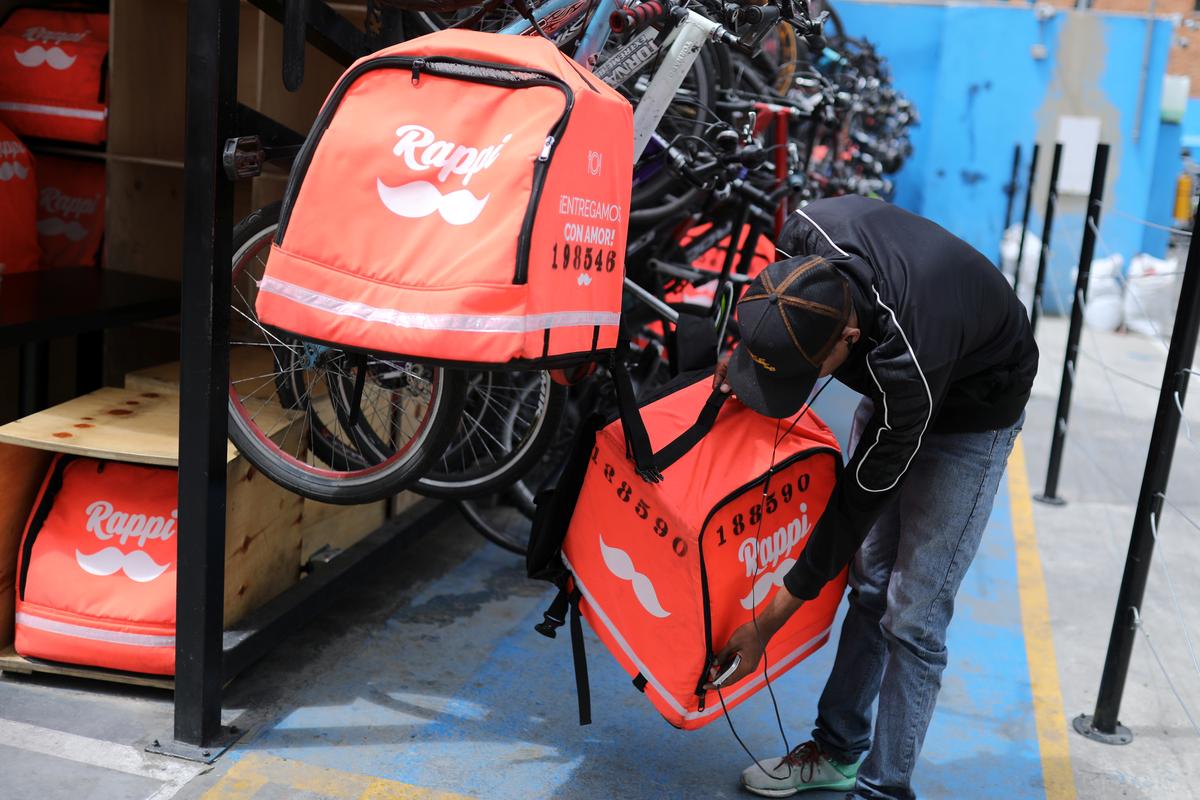SAO PAULO (Reuters) – The novel coronavirus outbreak is boosting grocery deliveries by web-based apps across Latin American countries, as schools suspend activities and more people work from home to contain a pandemic that has already infected more than 100,000 people around the world.
Colombian startup Rappi, which is backed by Japan’s SoftBank and has around 200,000 delivery people in nine Latin American countries, has seen a 30% increase in deliveries in the first two months of 2020 compared with the last two months of 2019, it said in a statement.
“We noticed a significant increase in the number of supermarket orders, which we believe is a response from users concerned with uncertainties and quarantine measures being taken in different cities,” Rappi said in a statement.
Considering only pharmacy orders, the startup has reported a 28% rise in deliveries in Colombia, its home-market, since mid-February, when the coronavirus pandemic started, Rappi said, adding that numbers in Brazil, its largest market in the region, are similar.
Brazilian app iFood, which specializes in delivering ready-to-eat meals in large cities, said it is too early to measure the impact of the coronavirus spread on its operations.
Uber EATS, the food delivery division of ride-hailing company Uber Technologies, also declined to provide figures on the pace of orders in Brazil, stressing it is “actively monitoring the coronavirus situation.”
Meanwhile, preventive measures are being adopted to protect deliverymen and app users. IFood, for instance, created a 1 million-real ($200,272) fund to support employees in quarantine, besides testing contactless deliveries.
Uber EATS, in turn, will provide financial assistance for up to 14 days to drivers or delivery partners who have been diagnosed with the coronavirus or have been quarantined by health authorities.
Source: Read Full Article
